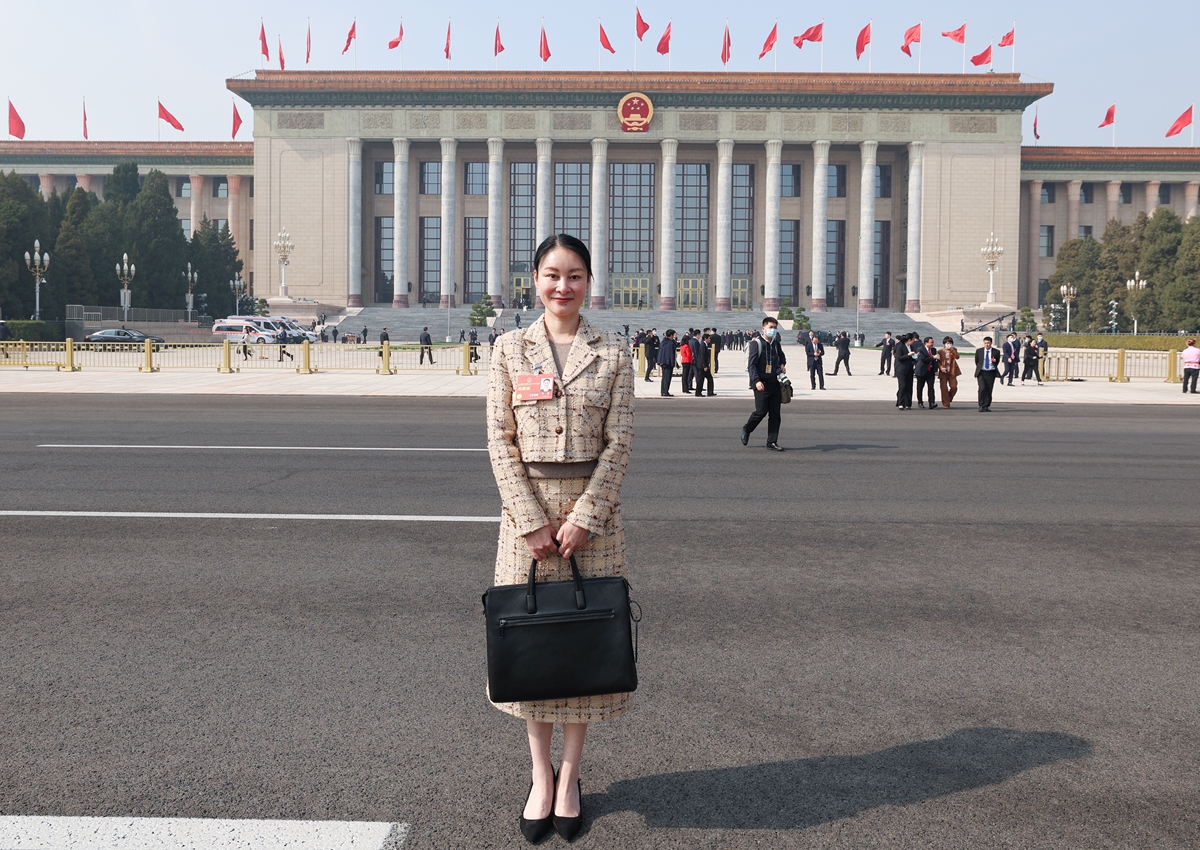ARTS / CULTURE & LEISURE
Revitalizing intangible heritage a priority, says NPC deputy

Zeng Na, the 23rd generation inheritor of the traditional brewing technique for Luzhou Laojiao Photo: Courtesy of Zeng Na
China's fruitful intangible cultural heritage condenses the diligence, wisdom and strength of the Chinese nation. This important and significant inheritance from generation to generation has left a deep impression on Zeng Na, the 23rd generation inheritor of the traditional brewing technique for Luzhou Laojiao, a well-known Chinese baijiu that dates back 450 years to the Ming Dynasty (1368-1644).As a National People's Congress (NPC) deputy, Zeng has submitted a motion for strengthening the inheritance and protection of China's intangible cultural heritage at the ongoing two sessions. She said that inheriting and promoting intangible cultural heritage is of great significance in enhancing the country's cultural self-confidence. However, with China's more than 5,000-year-long history, it is quite challenging to protect the large number of intangible cultural heritages that can be found across the country. Besides, some endangered heritages are facing the problem of a lack of inheritors.
She has proposed increasing fiscal support and establishing a systematic mechanism to provide projects and inheritors with substantial financial guarantees, especially for inheritors of endangered heritages.
Meanwhile, relevant enterprises need to offer resources and stages to help present intangible cultural heritages and make full use of the internet through events such as exhibitions, live broadcasts of musical concerts and festivals on intangible cultural heritage. Young generations can also learn more about ancient techniques by bringing cultural projects to schools and universities.
She added that intangible cultural heritage can come alive by combining it with tourism. By fully considering the cultural and historical background as well as the capacity of travel destinations, each region should integrate their vital intangible cultural heritages into tourism development.
On February 22, China's Ministry of Culture and Tourism published regulations to broaden and promote the integration of the country's intangible cultural heritages and tourism.
The ministry also stressed that integration must be carried out on the condition that cultural heritages are effectively protected.
Zheng Changling, secretary-general of the China Folk Culture Innovation and Development Center and a research fellow at the Chinese National Academy of Arts, told the Global Times on Sunday that China has carried out efforts to protect intangible cultural heritage for over 20 years.
He pointed out that with the rapid development of society, some ancient intangible cultural heritage might be "out of date" and need to be transformed to ensure they are preserved. For example, though people do not use oiled paper umbrellas anymore, they still sell as people purchase them as decorations or a work of art.
"Aging intangible cultural heritage can remain 'alive' after we find ways to connect it with our modern life. Those that are too old to survive can be recorded and collected by museums," Zheng said.
Other forms of cultural expression, such as ceramic products, can show the current state of intangible cultural heritage through exhibitions.
Through exhibitions like these, people abroad can understand the lifestyle of Chinese people and finally understand our wisdom and values, Zheng suggested.
He added that intangible cultural heritage is the cultural genes and spirit of the Chinese nation and can also provide a foundation for national identity. It is an important foundation for the sustainable development of Chinese society. If China's intangible cultural heritage is well protected, it will be able to make great contributions to maintaining the diversity of human culture and promoting the healthy development of human society.
Yu Jinlong, a cultural critic based in Beijing, told the Global Times on Sunday that intangible cultural heritage is an important carrier for promoting China's traditional culture and deserves a broader platform to be introduced to the world.
China now boasts 43 items on the UNESCO Intangible Cultural Heritage list, the highest number of any country.

